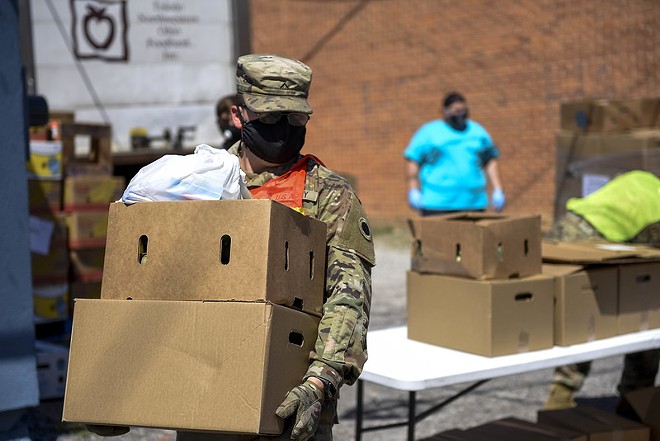Socioeconomic Impacts of COVID-19 Hit Low-Income Black Households the Hardest, Study Finds
Low-income Black households were hit disproportionately hard by the coronavirus, experiencing more job losses, debt, and food and housing insecurities during the first few months of the pandemic, according to a new study by Princeton University.
While numerous studies of COVID-19 have focused on the racial disparities in the U.S. health care system, the Princeton University research highlights the socioeconomic impact of COVID-19 by race.
“It became clear that while all low-income households struggled in the early months of the pandemic, Black households in America were disproportionately affected,” the study’s co-author Diana Enriquez, a doctorate candidate in Princeton’s Department of Sociology, says in a statement. “Even among low-income populations, there is a marked racial disparity in people’s vulnerability to this crisis."
Low-income Black households were hit disproportionately hard by job losses during the early months of the pandemic. At the end of April, 48% of the Black households reported losing a job, compared to about 30% of the white households.
Low-income Black households also reported higher rates of food insecurity than their white counterparts. In late April, 45% of the Black households said they struggled to pay for food, compared to 37% of the white households. By mid-June, the rate increased to nearly 60% for Black households, while white households reported no rise.
In late April, nearly two-thirds of low-income Black households reported housing instability, compared to 59% for low-income white households. In June, when COVID-19 restrictions began to ease, 51% of the Black households still reported housing instability, while the figure dropped to 37% for the white households.
About 81% of Black households reported new debt — unpaid bills — between the end of March and mid-June, while between 62% and 70% of white households reported new debt during the pandemic.
“The survey results really reinforce the extent to which the COVID-19 crisis has kneecapped those households who were already in a tenuous position near the poverty line,” said the study’s co-author Adam Goldstein, assistant professor of sociology and public affairs at Princeton’s School of Public and International Affairs. “Research shows that these types of debts and unpaid bills — even small ones — can compound over time and trap low-income households in a cycle of financial distress.”


